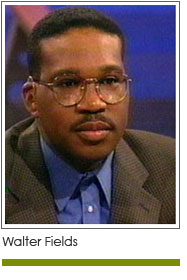 After watching a rerun of the 1980’s television mega-hit “The Cosby Show” on cable television, the thought that this show was controversial when it premiered is hard to fathom. The episode I watched was a funny but truly realistic interaction between a teenager, daughter Denise portrayed by Lisa Bonet, who purchases her first car without giving any thought to the responsibilities of owning a vehicle, and her parents, Cliff and Clair Huxtable, who give her a lesson in personal finance but lovingly support her. It is hard to imagine that this “normal” depiction of family could have been the subject of such scrutiny by those, Black and white, who criticized the Huxtables middle class profile as unrealistic. Never mind that it was the 1980’s when the sitting President, Ronald Reagan, was preaching self-determination and the nation was worshipping at the altar of laissez faire economics. For many Americans, despite the show’s enormous popularity, a healthy, economically stable Black family with two white-collar professional parents was simply beyond their comprehension. And sadly, remains so.
After watching a rerun of the 1980’s television mega-hit “The Cosby Show” on cable television, the thought that this show was controversial when it premiered is hard to fathom. The episode I watched was a funny but truly realistic interaction between a teenager, daughter Denise portrayed by Lisa Bonet, who purchases her first car without giving any thought to the responsibilities of owning a vehicle, and her parents, Cliff and Clair Huxtable, who give her a lesson in personal finance but lovingly support her. It is hard to imagine that this “normal” depiction of family could have been the subject of such scrutiny by those, Black and white, who criticized the Huxtables middle class profile as unrealistic. Never mind that it was the 1980’s when the sitting President, Ronald Reagan, was preaching self-determination and the nation was worshipping at the altar of laissez faire economics. For many Americans, despite the show’s enormous popularity, a healthy, economically stable Black family with two white-collar professional parents was simply beyond their comprehension. And sadly, remains so.
Looking at the trail of statistics that point to the implosion of the Black community, it would be easy to tag Bill Cosby’s depiction of Black family life a fantasy; the illusion of an entertainer who is looking at the world through rose colored glasses. Taking that short-sighted view would be a real tragedy. The aspirational aspects of The Cosby Show are reflected daily in the resiliency of Black families that overcome tremendous economic and social barriers and succeed against the odds. It was not so much that Cliff was a successful pediatrician and Clair a well-heeled attorney; it was the values they represented that are found in homes across the economic spectrum in the Black community. In the 1980’s, Thursday evenings on NBC were a reason to pause because we could finally see a depiction of Black family life that resembled what we knew to be true. It was not a fantasy because we knew parents who had high expectations for their children, stressed discipline, did not tolerate errant behavior and worked hard to provide for their families. Some might have went to an office to work, but many of the examples of positive role models we knew worked as mail carriers, sanitation workers, police officers, teachers and other more blue collar occupations.
It is why imagery is so important in creating “reality” for most Americans. For example, despite the many contributions of Italian-Americans to our nation, many people accept the idiocy of MTV’s “Jersey Shore” as representative of Italian culture. The same is true for other cultures and has been particularly the case for African-Americans. The absence of positive depictions of Black men and women on television, including those cable outlets claiming to target Black viewers, is no coincidence. It is our nation’s self-inflicted wound. We have for so long represented Black people as buffoons, criminals and uneducated that those stereotypes remain predominant in how we are portrayed and the Hutxables are treated as an anomaly. Even the election of the nation’s first Black President has not substantially altered the perception of many white Americans of Blacks, as is evidenced by the comments frequently heard when the conversation turns toward poverty, crime and sadly, public education.
The typology of Black life in the news, on television and in cinema has improved little since the 1980’s. It is why the Academy Awards given to Halle Berry for her role in “Monster’s Ball” and Denzel Washington for “Training Day” remain a point of controversy and contention within the Black community. It is not so much resenting the awarding of Hollywood’s highest honor to two celebrated actors; it was the portrayals for which they were honored and how they layer on another level of negativity to the debased caricature of Black people in America. We understand “acting” but when the predominant characterization of Black people is one-dimensionally demeaning and minstrel, it points to the larger issue of how we are identified in society.
It is why “The Cosby Show” still stands out for its nuanced portrayal of the Black family. Did it cover all of the bases? No. But it did a good job of representing Black people trying to tackle life in a very funny and poignant way, while giving the public a window to peer into a snapshot of the Black family that is missing from the American family album.
Walter Fields is Executive Editor of NorthStarNews.com.
















